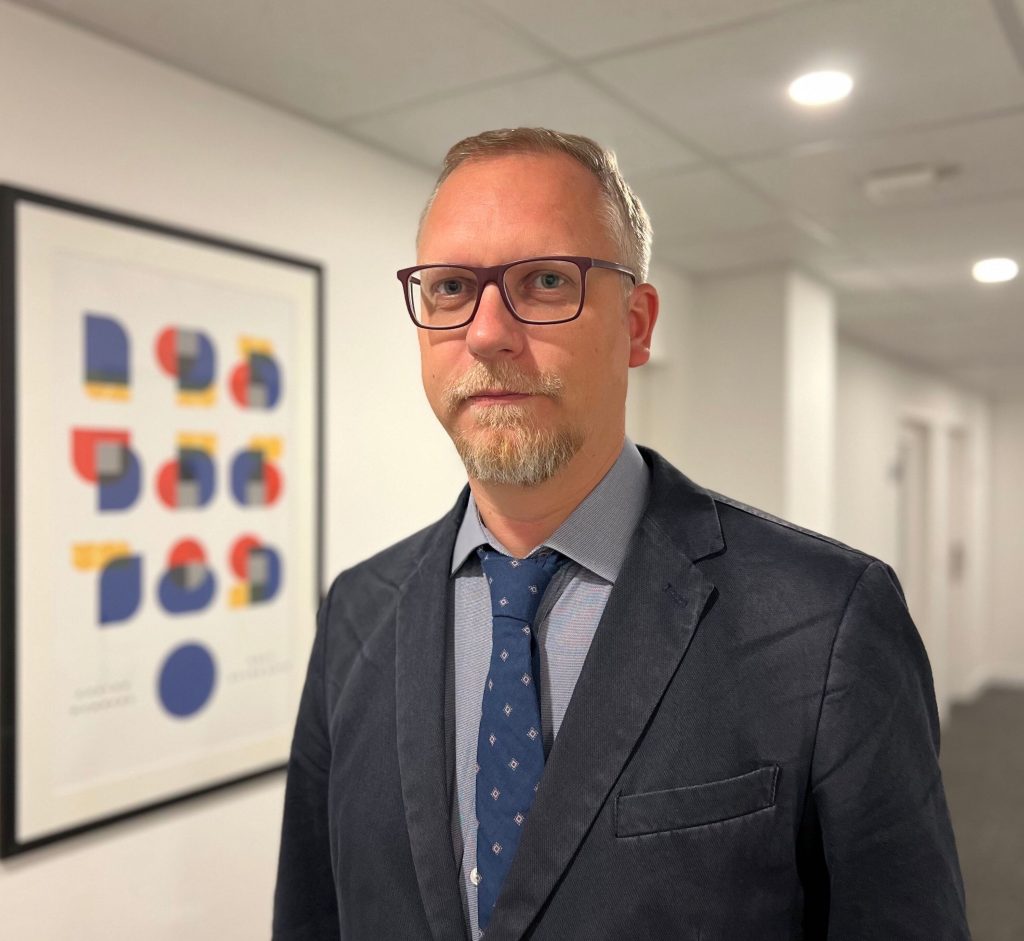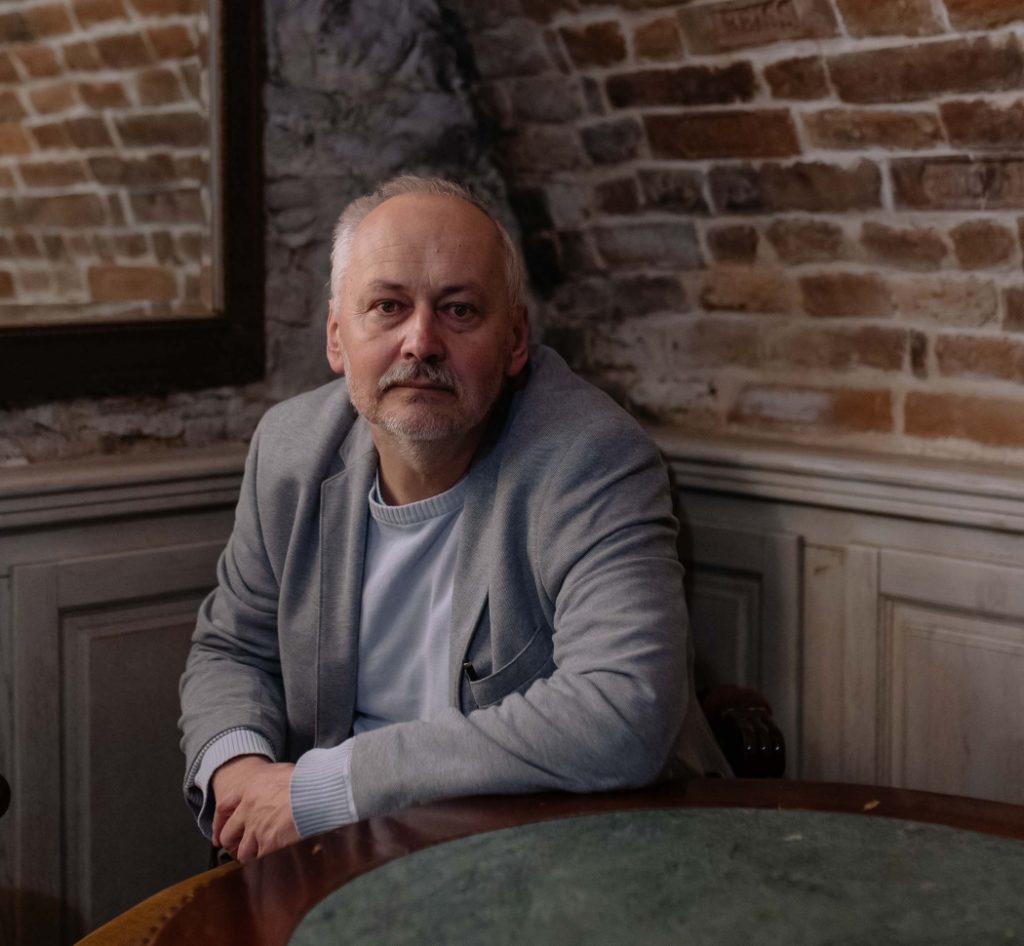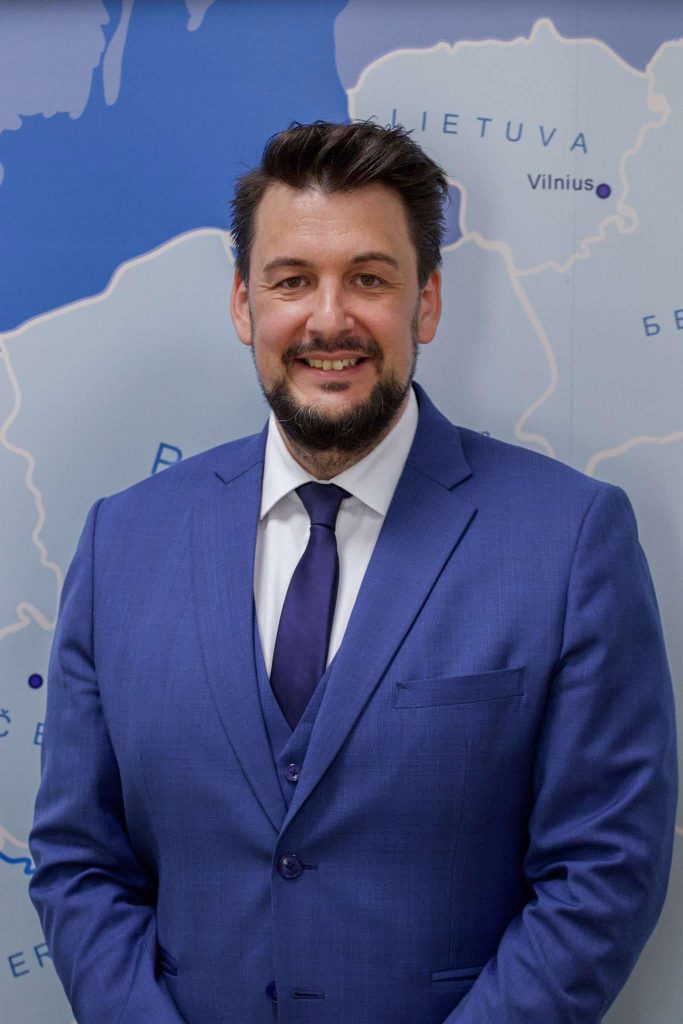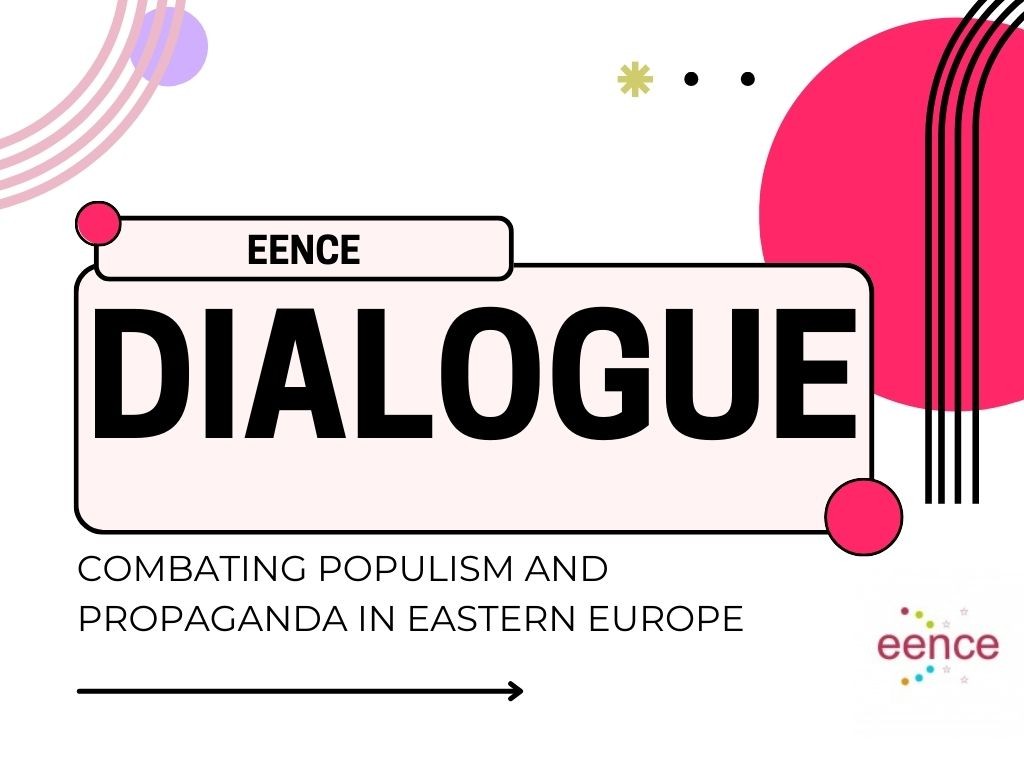Combating Populism and Propaganda in Eastern Europe
Why is the influence of populist political forces growing in many European countries and how does it affect the Eastern Europe region as a whole? What can be done to reduce the influence of populists. We invite you to discuss these questions together with EENCE Dialogue experts
Date: October, 30 (15:00-18:00 CET).
Program:
- Introduction (15 minutes): Overview of Combating Populism and Propaganda in Eastern Europe.
- Keynote Speech (30 minutes): Petra Guasti, Faculty of Social Sciences, Charles University in Prague
- Panel Discussion (45 minutes: Anton Shekhovtsov, Central European University (Austria); Anatoliy Kruglashov, Research Institute of European Integration and Regional Studies, Chernivtsi Jury Fedkovych National University, Ukraine; Sebastian Schäffer, Institute for the Danube Region and Central Europe (IDM).
- Q&A Session (30 minutes): Interactive session with attendees.
- Evaluation and Follow-up (15 minutes)
Working languages: English and Russian (simultaneous translation).
ZOOM Registration:
https://us06web.zoom.us/meeting/register/tZMof-GvrzIjH9JymBPrbwPW6sBqeD4EfD_r#/registration
Once registered, you will receive a confirmation email with conference login information.
Information about speakers:
Petra Guasti
Associate professor of democratic theory at the Faculty of Social Sciences, Charles University in Prague, and a senior research fellow at the Institute of Sociology, Czech Academy of Sciences. Her research focuses on reconfiguring the political landscape and revolves around representation, democratisation, and populism. Between 2022 and 2025, Petra is a co-PI of SYRI (National Institute for Research on the Socio-Economic Impact of Diseases and Systemic Risks), leading a 22-member team focusing on polarization and populism. She also leads the Czech teams in Horizon projects Neo-Authoritarianism in Europe and the Liberal Democratic Response (AUTHLIB) and Intersectional Spaces of Participation: Inclusive, Resilient, Embedded (INSPIRE). In AUTHLIB Petra leads a work package on mini-publics in INSPIRE she leads a work package on the Co-production of learning and action with public officials and citizens.


Dr Anton Shekhovtsov
A Visiting Professor/Senior Fellow at the Department of International Relations of the Central European University (Austria) and Director of the Centre for Democratic Integrity (Austria). He holds a PhD from University College London (UK). He is the author of the books New Radical Right-Wing Parties in European Democracies (2011), Russia and the Western Far Right: Tango Noir (2017), and Russian Political Warfare (2023). Shekhovtsov also published numerous op-eds in international media, and several academic articles in the Journal of Democracy, Russian Politics and Law, Europe-Asia Studies, Nationalities Papers, Patterns of Prejudice, and Osteuropa, among others.
Prof. Dr. Habil. Anatoliy Kruglashov
a political scientist, and historian who works as Head, of the Department of Political Science and Public Administration, and Director of the Research Institute of European Integration and Regional Studies, Chernivtsi Jury Fedkovych National University, Ukraine. He has also been a Professor at the Department of International Relations and Political Science, University of Lodz, Poland since November 2022. He is a Member of the Group of Independent Experts on the European Chapter of Self-Government, Congress of Local and Regional Authorities, and Council of Europe since 2014. Also, he is a Member of the OCEAN Advisory Board, Council of Europe. Research interests mainly cover but are not limited to European integration with special attention on the EU policy towards Ukraine and EaP countries, Security studies, CEE and post-soviet space political processes, Political regionalism and ethnopolitics, History of Political Ideas and Political Science, Public Administration and Self-government. Prof. Kruglashov has been Invited as a Scholar and Professor at the University of Alberta (Edmonton, Canada), a Visiting Fellow of Harvard Ukrainian Institute, Harvard University, and a Professor of Jagiellonian University (Krakow, Poland), European Humanities University (Belarus and Lithuania). He has been invited to lecture in Canada, Germany, Slovakia, Poland, Russia, Romania, and the USA.


Sebastian Schäffer
Director of the Institute for the Danube Region and Central Europe (IDM), a regional think tank based in Vienna. In this capacity, he also serves as Secretary General of the Danube Rectors’ Conference (DRC), a network of more than 60 universities in the wider Danube Region. In 2011, the Munich-born political scientist founded SSC Europe, a competence network for Seminars, Simulations, and Consulting. Schäffer has held several positions as a lecturer and research fellow at universities and institutions in Germany, where he also gained two Master’s degrees. His areas of expertise include European Integration, EU enlargement and future scenarios. He is the author of more than 100 articles and papers, and has written as well as edited several books, among them “Ukraine in Central and Eastern Europe”.
Abstracts
Petra Guasti, Polarization and Democracy in Central Europe
This presentation focuses on the comparative analysis of polarization in Central Europe, particularly examining the Visegrad Four countries—Czech Republic, Hungary, Poland, and Slovakia. It aims to trace the degree and evolution of various forms of polarization—ideological, affective, intransigent, and partisan sorting—across these nations over time. Using comparative data from the V-Dem Institute, this analysis highlights regional trends and differences in how these forms of polarization have developed and manifested.
By contrasting the experiences of each country, we can better understand the impact of polarization on societal mobilization and its implications for democratic resilience or decay in the region. Through this examination, the presentation will illuminate the complexities of polarization in Central Europe and contribute to the broader discourse on the challenges facing democracy in this context.
Anton Shekhovtsov, Europe’s Interregnum and Right-Wing Populism
Europe is currently facing several major crises underpinned by economic stresses, migration pressure, climate change, and geopolitical tensions resulting from the Russian aggression against Ukraine. If Europe recovers from this multiplicity of crises, it will unlikely re-emerge in the familiar political and socio-cultural form, which imbues the current situation with the characteristics of an interregnum – a transitional period between the old and new orders.
European liberal democracies try to navigate the interregnum by mitigating the challenges of both the interregnum and the perceived new order. While the liberal-democratic consensus still holds in Europe, it is being defied by right-wing populist governments and political parties that imagine a return of Europe to the old order.
Anatoliy Kruglashov, Populism, pandemic but must be curable
Populism is not a novelty in the realm of policy and politics. Some traits of them might be easily detected since ancient times. However, last decades we have witnessed a true revival of populism. Both as the type of political culture and behaviour and as the set of tools to get wider political support. It is hardly possible to portray populism as a consolidated movement or a clearly defined phenomenon. It has distinct colours and tunes, ramifications, and specificities all over the globe.
It affects the most stable democratic countries, like the USA or Great Britain. It makes more threatened and fragile countries with weaker democratic traditions and regimes, like some of the post-soviet countries. That is why the phenomenon worth to be deeply analyzed and considered. In my presentation, I will evaluate the most common traits of the populist’s societal and psychological foundations, special attention is to be paid to the situation in Ukraine and Moldova. I am going to deliberate on the connotation of advancing populists’ assaults and Russia’s backed political parties and forces in Europe too. Some proposals to hasten populism expansion will be made at the end of the presentation.
EENCE Dialogue is organised by the Eastern European Association for Citizenship Education with the support of the Federal Agency for Civic Education (bpb) with funds from the German Ministry of Foreign Affairs.


